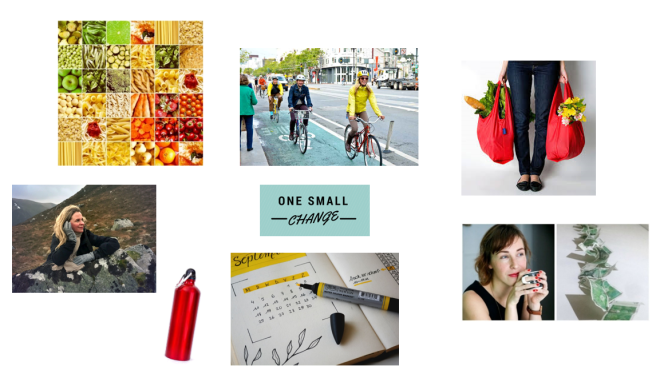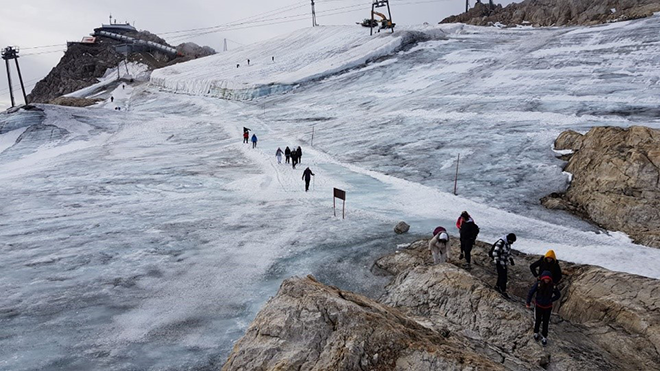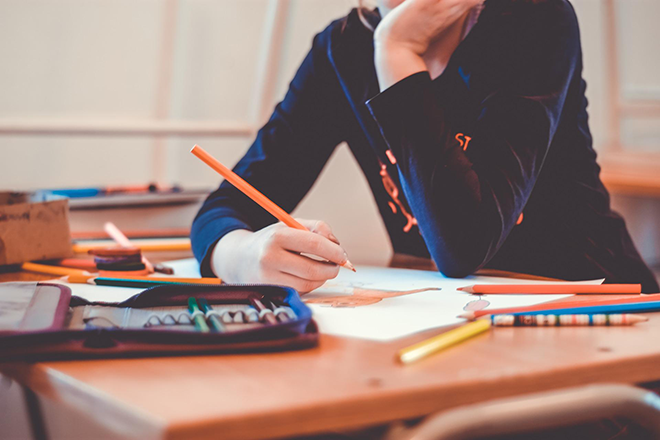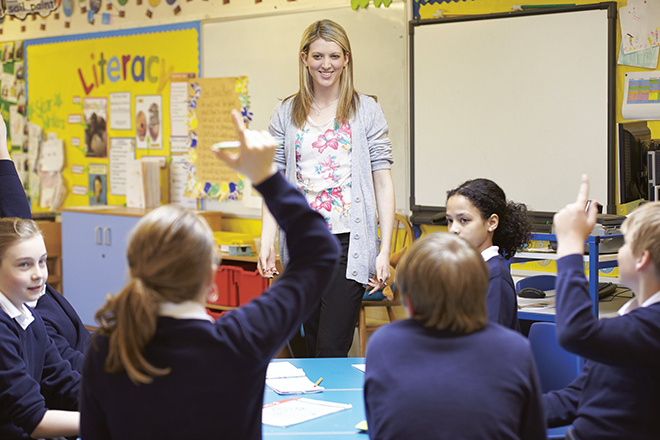Around the world, youth, disappointed with inaction, are taking to the streets to create a more empowering story about climate change and sustainability and visions for the future. And it’s no wonder they do. The current narrative about climate change surrounding them is often dystopian. They are confronted with terrifying scientific evidence and events around the globe showing the adverse impacts of climate change and other sustainability challenges.
Whether it is melting ice sheets, wildfires, ocean acidification, sea-level rise, species extinction, reduced food, water and livelihood security, or more extreme weather events, the severity and urgency of the issue are reaching them.
In this situation, students lack engaging stories on how they, as citizens and as a collective, can influence their future. How can we, as a society, provide them with the learning, experience and supportive structures they need to reach their fullest potential as citizens and active participants in creating a sustainable and equitable future? How can we support them in creating the future they envision?
Education that transforms the future
In their recent article Bentz and O´Brien (2019) highlight educators and schools play an important role in strengthening students’ ability to think critically and engage with contemporary social, environmental, and political problems. At the same time, there is a growing recognition that complex, non-linear and potentially irreversible changes associated with global environmental problems call for a different approach to education (O’Brien et al., 2013).
In educational settings, climate change is often framed as an environmental problem that requires expertise and political power to address. As such, it is easy for young people to conclude that global problems are outside their sphere of influence (Schreiner et al.,2005)and feelings of helplessness, pessimism, and despair emerge. As many educators may have experienced, education about global issues may even increase these negative feelings.
A primary focus on the negative impacts and dangers of climate change in climate education may also lead to feelings of hopelessness and inaction (Markowitz and Shariff, 2012). The question is, how can we educate students on both the scientific evidence and challenges of environmental issues in a way that also bring about the full potential in them to transform society?
Transformative learning has the potential to enhance young people’s agency, and to facilitate their active participation in complex problems.
Multiple studies suggest that it is through participative, experiential or action learning that people begin to question and reorient their existing values, knowledge and concerns (Brockbank and McGill, 2007). This can help people to become the subjects or authors of their own lives, capable of critical reflection and of transforming the world.
But how do you practice transformative learning? How do you educate for transformation, and how can education in itself be transformative? To help teachers along the way, we developed the experiential and experimental learning tool, cCHALLENGE.
cCHALLENGE: A transformative learning tool
cCHALLENGE is a tool and learning program, developed by cCHANGE that allows the teacher and students to explore the process of change and transformation in a practical and engaging way. With a personal 30-day change experiment at the core, the students can address and learn about both local and global issues of climate change and sustainability through experimentation, experience, reflection, conversations and stories.
Over the course of the thirty-day change experiment, cCHALLENGE-participants receive research-based information, inspiration and reflection questions based on a heuristic known as The Three Spheres of Transformation. Thus, each student’s individual change experiment is embedded within a larger narrative of social and systems change. Participants are encouraged to explore how their actions, conversations and engagement influence (and are influenced by) others, as well as how systemic factors can facilitate or impede change.
By approaching change as an experiment, pupils are encouraged to explore, reflect and ask questions such as “what if”, “why?” and “why not?”
Making transformative learning real
cCHALLENGE focuses on change within the wider context of s
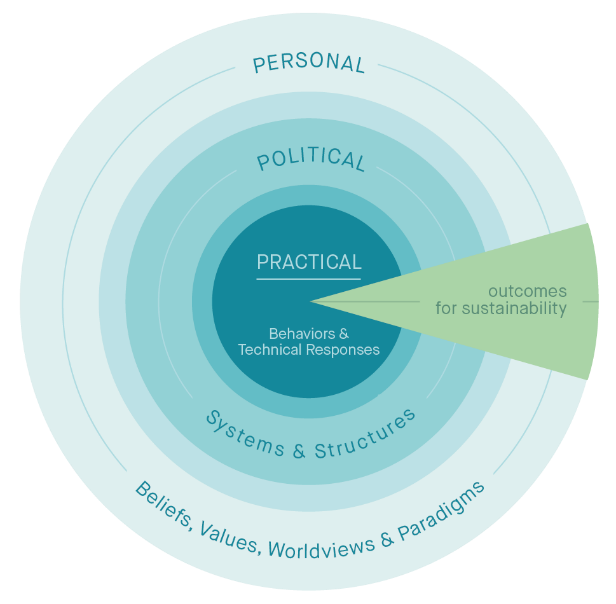
ustainability issues. The program turns the students’ attention to the role of social and cultural norms, structures, and systems in processes of change, and triggers insights into how assumptions, beliefs, and values influence how society is organized and what goals that are prioritized.
Our experience is that approaching climate change and sustainability from this point of departure sparks interest and engagement in a gentle, subtle and long-lasting way by enabling the following:
- Experimentation and experience: cCHALLENGE was developed for students to personally experience how change happens and explore the factors that foster and hinder change. The tool fosters experimentation and reflection and provides teachers with useful, concrete examples to teach about complex issues and interrelationships. The goal is that this experiential learning helps to shift disempowering narratives, and activate each student’s sense of agency and significance in creating the changes they wish to see. By inviting students, teachers, families, and communities to experiment with and experience change, cCHALLENGE contributes to learning and capacity building related to individual, collective and systems change.
- Reflection and critical thinking: Rather than treating people as “objects to be changed” in the name of sustainability, cCHALLENGE creates a space for reflection on the systems and structures, barriers and alternatives needed for sustainable transformation, and the connections between individual change, collective change and systems change. The tool equips the participants with knowledge, skills, and a sense of agency in creating changes in their own lives, in their families, in their school, in their community, and in politics.
- Sharing stories, creating new conversations and inspiring others: When someone makes a change in their own life, it often sparks either positive or negative reactions from others. By sharing stories and experiences with friends and family, discussing and reflecting with others, participants become aware of the power of social and cultural norms. They also become aware of the power they hold to influence and inspire others through conversations and stories.
- Lasting change from the inside out – shifting perspectives: Lasting change involves shifts in perspectives that enable people to view problems and solutions in new ways. New insights and “ah-ha” moments can be transferred to other situations and contexts. Making connections and perceiving relationships is critical to active engagement with the types of change needed for sustainability.
Approaching climate change and sustainability issues from multiple perspectives can trigger new conversations among students, teachers, friends and families. Experiencing and reflecting on new connections widens the solutions space, and help students and the people they inspire to see larger and more meaningful roles for themselves in addressing complex social and environmental issues.
cCHALLENGE in open schooling
As cCHALLENGE is a tool that facilitates collective learning and connects personal challenges to social and political problems, it addresses the needs identified in SEAS for tools to facilitate and expand the collaboration between partners inside and outside the school. The goal is to continue developing and applying the cCHALLENGE tool in various open schooling context in different countries.

Learn more
Learn more about the cCHALLENGE.
Learn more about the team behind it.
References
Bentz, J. and O’Brien, K., (2019). ART FOR CHANGE: Transformative learning and youth empowerment in a changing climate. Elem Sci Anth, 7(1), p.52. DOI: http://doi.org/10.1525/elementa.390
Brien, K, Reams, J, Caspari, A, Dugmore, A, Faghihimani, M, Fazey, I, Hackmann, H, Manuel-Navarrete, D, Marks, J, Miller, R, Raivio, K, Romero-Lankao, P, Virji, H, Vogel, C and Winiwarter, V (2013). You say you want a revolution? Transforming education and capacity building in response to global change. Environ. Sci. Policy, Special Issue: Responding to the Challenges of our Unstable Earth (RESCUE) 28: 48–59. DOI: 10.1016/j.envsci.2012.11.011
Schreiner, C, Henriksen, EK and Hansen, PJK (2005). Climate Education: Empowering Today’s Youth to Meet Tomorrow’s Challenges. Stud. Sci. Educ . 41: 3–49. DOI: 10.1080/03057260508560213
Markowitz, EM and Shariff, AF. (2012) Climate change and moral judgement. Nat. Clim. Change 2: 243–247. DOI: 10.1038/nclimate1378
Brockbank, A and McGill, I. (2007) The Action Learning Handbook: Powerful Techniques for Education, Professional Development and Training. Dev. Learn. Organ. Int. J . 21. DOI: 10.1108/dlo.2007.08121bae.002


